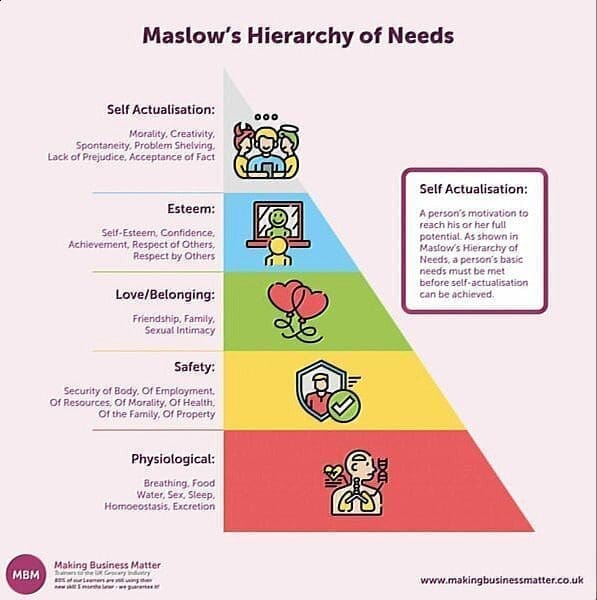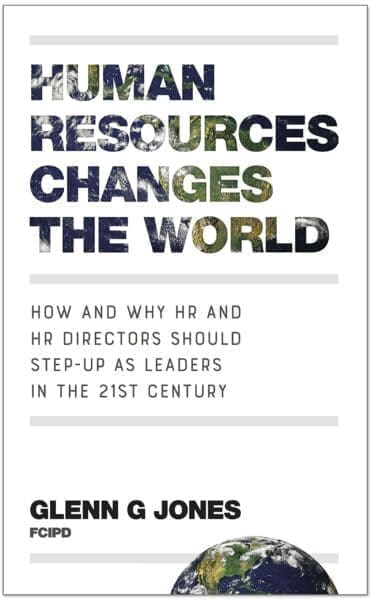Let’s Dive into Authentic Leadership
Can authentic leadership be taught? Before we go deep into this subject, let’s ask a reflective question of you, the reader. Think of the best authentic leaders you have come across. What makes them different and why do you want to follow them? I will answer the above question while you ponder this.
Introduction
Before launching into my opinion and viewpoint, let’s consider a possible definition of Authentic Leadership:
A type of leadership that assumes leaders should act honestly and transparently and in ways that are true to themselves. Authentic leaders are self-aware and willing to be open with others, and act in ways that are seen to be genuine. It is said to build trusting relationships with others and to lead to longer-lasting positive outcomes. It draws on the contested notion of what it means to be authentic and requires a capacity for self-awareness.
In addition, I would like to introduce the definition of emotional intelligence. In my opinion, this is acutely woven into Authentic Leadership and covered later in this thought piece:
“the ability to understand the way people feel and react and to use this skill to make good judgments and to avoid or solve problems. ”
My main reason for setting this out at the beginning is alignment.
Staff Retention
In 2019, Personnel Today reported that based on a survey run by TotalJobs that “half of UK workers quit due to bad management” (1000 employees out of 2098). Fast forward to 2021, and in November, 4.5 million people resigned in the US. Furthermore, it was then reported that a third of UK workers either wanted to leave or had delayed leaving until the pandemic had settled down.
Whilst these reported resignations and intentions to leave may not all be attributed to non-authentic leaders; I argue that leader authenticity is an essential element in the retention of staff in fast-changing and volatile working environments.
To sense-check whether people thought that they were led by authentic leaders, a LinkedIn qualitative and quantitative poll was run for one week in February 2022. Thank you to those people who voted and commented. Of 7534 views, only 117 (1.6%) people voted and even less added commentary. The table below represents the output of the results:
Are You Managed and Led by an “Authentic Leader?”
Whilst the response is weak considering the post’s views, the startling fact is that 41% of the respondents felt that their line managers were not authentic 50% of the time!
*With the permission of those who commented, a few quotes have been weaved into this article*

Sticky Learning ® is 7 times more effective than 1-day training courses. Plus, you will get a Chain of Evidence proving your Return on Investment. Discover soft skills training that changes behaviours long term.

Why is Being an Authentic Leader is Needed More Than Ever Before?
Since the second world war, nothing has shaken the globe so much as COVID19 and the social by-product of what is now being coined as the ‘Great Resignation’. There is no main reason for this. However, authentic leadership and leaders, in my opinion, would be around the top of the list. This is closely followed by the ability to work hybridly.
If you recall Maslow’s hierarchy of needs pyramid, an authentic leader enables an employee/person to fulfil a great deal of the deficiency and growth needs. Because people (staff) are essential to every company worldwide.

For example, if a person thinks that a manager is not sincere in their promotional prospects, this will impact the safety and self-actualisation needs. In the short term, that may be sustainable. But long-term, it will erode the overall confidence in their line manager, CEO etc.
NB – Academically, Maslow’s work has been heavily critiqued over the years and could be applied to most arguments; however, I am using it here to highlight the intrinsic needs.
Can Authentic Leadership be Taught?
There is no straightforward binary answer to this question, and I contend that it depends on several factors. For instance, your style today and whether it is currently transactional, transformational, or more command and control way of leading and managing people. Also, depending on the length of time you have operated this way, your personality, and the degree of emotional intelligence you possess. Furthermore, the desire to move to a better way of leading could go either way.
Before looking at the “no” side of the answer, let us signpost the areas that can/could be taught and the tools to aid this:
“I think behaviour change can be learned but I think underlying values and beliefs are harder to change as they are set through a lifetime of experience. In my mind, someone is authentic when they are true to their values and beliefs. If they are just “being seen” to hold a value or a belief I think that seems false and I wouldn’t see that person as authentic.”
Source: personal opinion of Smith, J, Director at Matgrad Limited Business and Management Consultancy (LinkedIn, 2022).
Know Yourself
Authentic leadership, at its core, is all about knowing yourself (emotional intelligence). Also its about knowing your ability to seek feedback continually and, more importantly, evolve accordingly. From a People and HR perspective, the number of people that go through this process of 360 feedback just because they must and do not gain any value from nor act on feedback is, in my opinion, ridiculous.
The ability to act on this valuable feedback from the people you work with is key to innovation, and it is critical to the growth mindset. This does not matter if you are the CEO or the cleaner. The people who provide feedback (or, in my opinion, a gift) do not understand that brave and transparent feedback enables growth. Because, 100% positive feedback whilst pleasant and safe, does not give you very much to work on.
Feedback

Starting with the feedback (positive and developmental) allows you to see (all being good) how people perceive you. Furthermore, we would recommend doing this inside and outside of work as in our opinion, there should not be much difference.
Finally, as a company and development framework goes, this is not something you can give lip service to. The true value of undertaking feedback is binary, and you are either in or you are out. The CIPD (2022) defines performance management as:
“is about creating a culture which encourages the continuous improvement of individuals’ skills, behaviours and contributions to the organisation. It’s a key part of the relationship between staff and managers..”
“Authenticity. But it comes from the top right down the business. Just
because you own the business or the “Boss” you need to create a culture and set the values. The downside is it can be taken advantage of by some employees and sometimes seen as being too soft. and a weakness. Everyone has a part to play in this and are all part of the 🧩 “
Source – personal opinion of Jones, S., Founder & CEO – Comparison Creator (LinkedIn, 2022).
Lose the Ego
A true leader is someone that has a “quiet-ego”. If someone has high Emotional Intelligence, they will already be aware of this. However, if not, providing that the respondents have been brave, honest, and professional, this should/will come out from the above feedback. Wayment and Bauer define “quiet ego” as:
“Far from a squashed, deflated, or silenced ego, the quiet ego comes from a place of non-defensive strength. The quiet ego is a self-identity nurtured through deliberate reflection and endorsement of four values that promote balance and growth: detached awareness, inclusive identification, perspective-taking, and growth-mindedness. A quieter ego is a compassionate and regulated ego—a self-identity that strengthens thoughts, feelings, and behavior congruent with eudaimonic well-being.”
Eudaimonia means the type of happiness or contentment achieved through self-actualization and having a meaningful purpose in one’s life.
In my opinion, this can be taught. If you already have a high ego, though, this will probably be ingrained. Therefore, it will take you some time to address this and dial down the ego. After all, successful leaders know that they can only win/thrive by working with their colleagues. Furthermore, rewarding, caring, and nurturing their people/team is not something that goes hand-in-hand with people with a high ego.
Related reading: For even more useful content on leadership, check out our ultimate guide on Leadership Skills.
Acquire a Mentor and a Coach/Cognitive Behaviour Therapist

Typically having a Mentor and a Coach and or Cognitive Behaviour Therapist at the same time could be information overload. That said, to teach authentic leadership, you need to:
a) have a mentor who is a great role model of authentic people-orientated leadership and
b) have a coach and or cognitive behaviour therapist. Because they can explore the cognition and cognitive behaviour that you currently have and how you need to change it.
In my opinion, this is a vast investment in yourself as a person. But, without exploring the values, etc., reprogramming your natural self that will be ingrained over several years would be hard to achieve and maintain.
“Self awareness and EQ can be taught, usually by learning through training and coaching – and I have seen one leader transform through the words of a respected mentor – but again, as below, behaviours are driven by our emotions which are informed by our life’s experiences and it can be tricky to undo the impact of these. Leaders need to be really open to change to be able to go on this journey.”
Source: personal opinion of Jones, F., Founder – Beautiful Minds (LinkedIn, 2022).
Know Your Team and be Inquisitive
A 21st-century leader is acutely aware of the entire nuances of the world we live in. They are curious, knowledgeable, non-biased and understand how to release the best talents of their people and teams. Furthermore, Osborne posits that leaders need to “integrate people, processes, structures and resources in semi-permanent ways.”
The leader has to know their team inside and out to do that. However, there is a fine line as to how much you do this. Burns cautions and highlights the negativity and ability of toxic leaders to impact their people negatively, and people do have boundaries that need to be respected. This is an area that does not need to be taught. But it may be that you are not doing this today, and you should look at how much you know about the people you work with and who you are trying to inspire.
“They are clear on the story they want to change in the world, and in the fact that it is only through their people that it will happen.
To that end, they are focused on:
- Their own and their people’s well-being first and foremost.
- Understanding and removing barriers in their people’s way.
- Investing in the next step of their and their people’s careers.
- Planning their successor’s success”.
Source – personal opinion of Holbrook, P., Founder or Diary Detox® (LinkedIn, 2022).
Inspire and Pay it Forward
In my opinion, the best leaders are those who demonstrate a credible and conscious passion for bringing growth and fun to peoples’ working lives. The adage of “work hard/play hard”. It does not make them pushovers, and yes, this could be taken advantage of. However, seeing people excel and move forward or simply enjoy coming to work should be the mantra for every authentic leader irrespective of their level or rank.

Furthermore, Allen & Higgins incorporate the need for cultural and emotional intelligence to enable greater global success. Go back to the question at the start and the leaders you thought of. Did they inspire you and enable you or demotivate and block your career?
Can this element be taught? In my opinion, yes it can. Because you just need to understand that your success is critically linked to the people surrounding you.
Inspire or Demotivate?
“Very interesting poll/subject for an article Glenn. I went with 100% of the time – and for me, it’s around emotional honesty. When someone’s open about their feelings (even if that’s that they’re feeling frustrated or annoyed – which can be quite hard to express in our work culture) and does so with curiosity, that makes me feel that I can trust them. That means I don’t feel judged and can also respond with the same emotional honesty.
Positives
Being able to bring a genuine self to work and not feel like there are political machinations going on above me. I’ve worked in jobs where I definitely didn’t feel this way from the leadership. I found that lack of psychological safety quite draining. However, in my current role, that sense of emotional connection also means I have a clearer idea of a common goal. This for me also contributes to wanting to stay somewhere.
Negatives
I don’t see many negatives apart from possibly the fact that sometimes it’s easier to avoid transparency. Also, openness can be difficult. I think it’s quite a radical thing in the working world, and so does take some getting used to both to experience and put into practice.”
Source – personal opinion of Hargreaves, G., Head of Relationships at Friday Pulse (LinkedIn, 2022).
What Cannot Be Taught?
They say that “you cannot teach an old dog new tricks”. This comes down to mindset, and, moreover, the person’s desire and motivation to change. Similarly, Winstead et al., earlier demonstrated in older people that change is possible. But, without a great deal of effort on the person’s part to change, it is likely to fail.

Conclusion
Can authentic leadership be taught? In my opinion, yes. However, a person must critically examine their current personality and their way of leading. Furthermore, they should seek honest feedback from those people around them on how they really are perceived and how they lead. Armed with this dose of reality, it comes down to a) acceptance and the desire to change or b) denial.
If it’s the latter, then nothing will happen. But, if it’s the former, the feedback loop should continue indefinitely. Because continuous improvement should be seen as a natural state of growth. Seeking to be a better leader and person should be an ongoing characteristic. Also, it should be the mantra of every leader irrespective of their position in their company. Bad habits and old ways can be changed. Will it be easy in the short term? Maybe, or probably not. But it absolutely will if you put in the work in the long term.
Further Reading…

Parts of this article are drawn from the book Human Resources Changes the World by Glenn G Jones. Furthermore, aspects of this article will be covered in the DBA research that Glenn is undertaking (incidentally, if you are a CEO or a CPO/CHRO/HRD of an FTSE350, please contact Glenn if you are willing to undertake a 45 min interview (strictly controlled by the University of Derby Code of Ethics and Anonymity) later this year).

Key References
- Allen, I. & Higgins, J.M., 2005. Global leadership success through emotional and cultural … Elsevier. Available at: https://www.integraorg.com/wp-content/docs/El%20exito%20global%20de%20liderazgo.pdf [Accessed February 7, 2022].
- Mcleod, S., 2020. Maslow’s hierarchy of needs. Simply Psychology. Available at: https://www.simplypsychology.org/maslow.html [Accessed February 2, 2022].
- Rumsey, M.G., 2013. 27 – From Transactional and Transformation Leadership to Authentic Leadership. In The Oxford Handbook of Leadership. New York: Oxford University Press, pp. 392–402.
- Williams-Grut, O., 2022. ‘great resignation’ sends UK quit rate to highest since 2009. Evening Standard. Available at: https://www.standard.co.uk/business/great-resignation-uk-rate-deutsche-bank-sanjay-raja-b978084.html [Accessed February 1, 2022].
- Yaeger, D.S. & Dweck, C.S., 2020. Apa PsycNet. American Psychological Association. Available at: https://psycnet.apa.org/record/2020-99903-019 [Accessed February 3, 2022].




